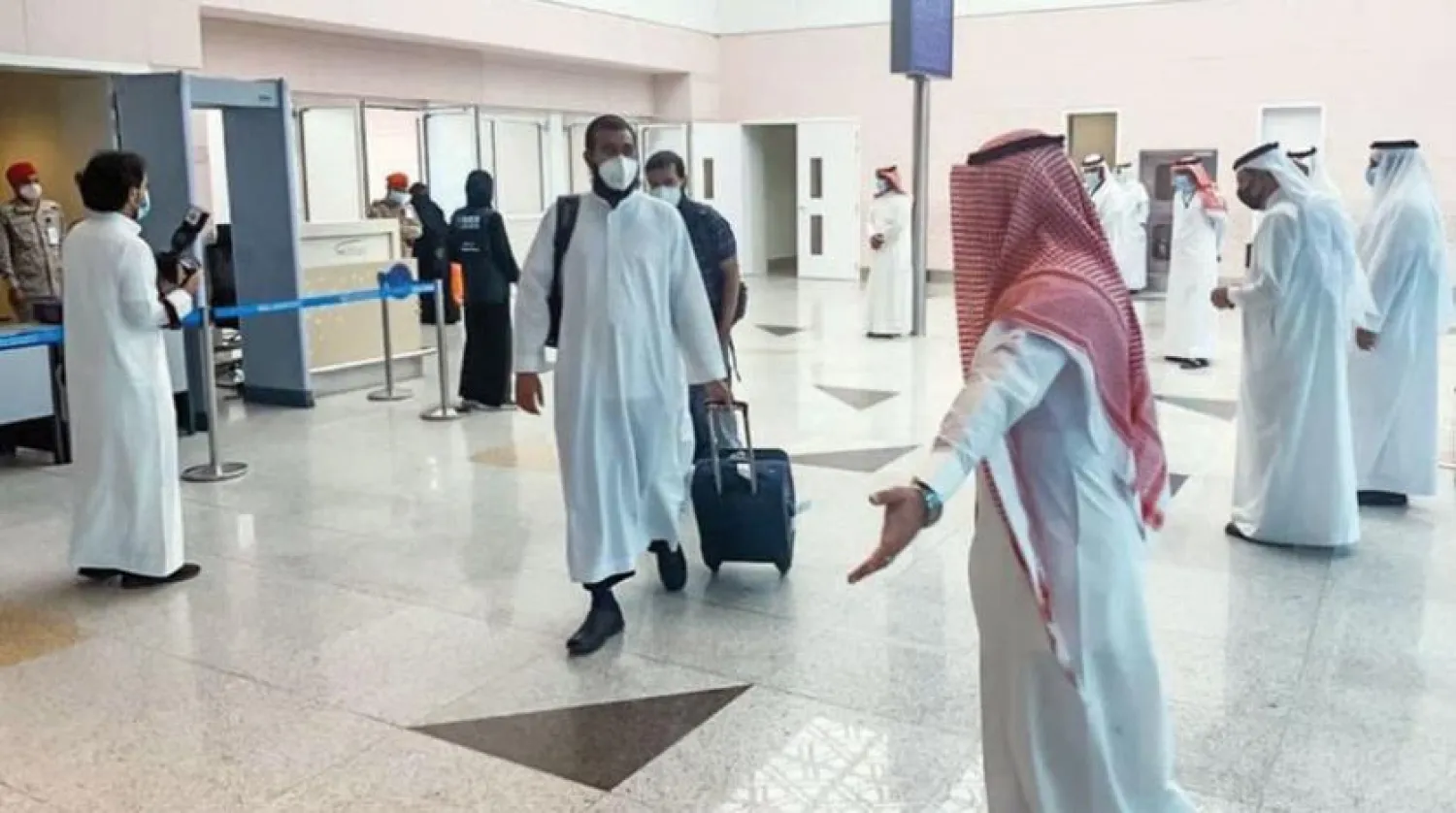The King Abdulaziz International Airport on Friday received the first batch of Hajj pilgrims who will be performing this year’s Hajj rituals under exceptional circumstances. Only residents and citizens inside the kingdom will be performing Hajj this year.
The Saudi Ministry of Hajj and Umrah announced on Twitter that the pilgrims were received amid precautionary measures and in cooperation with the Civil Aviation Authority. The batch of pilgrims came from the Qassim region and arrived five days before the start of Hajj rites.
This comes after relevant authorities have completed all preparations for the service of Hajj pilgrims this year and this covers all health precautionary measures as part of a comprehensive plan that involves security, health, and services.
In the last few days, the Hajj and Umrah Ministry prepared a hotel to receive the pilgrims and host them while they stay in Makkah. Each pilgrim will be given a room that is fully equipped with health preventative tools and will be checked daily through health screening points.
The Ministry of Hajj and Umrah in Saudi Arabia has completed the electronic screening of more than 160 nationalities residing in Saudi Arabia to perform Hajj rituals for this year.
Residents in Saudi Arabia will constitute the largest percentage of pilgrims this year standing at 70 % of the total number of pilgrims. Saudi citizens will constitute 30%, the majority of whom worked in the medical and military sectors, who were infected and recovered from the coronavirus.
The pilgrims’ health status was the main criteria used in selecting who would be allowed to participate in this year’s Hajj pilgrimage, state news agency SPA reported.
The selection process was conducted in a transparent manner and focused on participants’ well-being, the report added, quoting Saudi Hajj Minister Mohammad Benten.
Saudi Arabia decided to limit participation in this year’s Hajj pilgrimage with the continued threat of coronavirus to ‘global public health’, the Hajj and Umrah ministry earlier said.
Only Saudi residents and citizens under 65 years old join the pilgrimage and must take mandatory coronavirus testing and undergo quarantine.
“This decision is taken to ensure Hajj is performed in a safe manner from a public health perspective while observing all preventative measures and the necessary social distancing protocols,” a statement from the ministry said.
About 2.5 million pilgrims performed Hajj last year, with more than 1.8 million of them traveling from overseas to perform one of the pillars of Islam.









